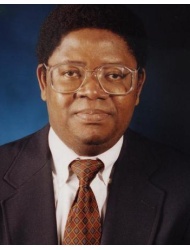A Ghanaian scientist at the Virginia Polytechnic Institute and State University (Virginia Tech) in the USA has received more than US$1 million in grants to develop a technology to turn chicken droppings and other poultry wastes into a safer fertilizer and a biofuel, according to a local media report.
Associate Professor Foster A. Agblevor, is planning to test his mobile guano reactor this fall at a chicken farm in the Shenandoah Valley, the heartland of Virginia's poultry industry.
His efforts, if successful, will not only provide an alternative fuel supply for the state, but also a solution to reduce the mounting chicken and turkey wastes from the US$830 million poultry industry in Virginia.
Similar initiatives are also undertaken elsewhere to convert waste into energy in the United States, including a power plant in Minnesota that burns turkey waste to create electricity and a litter-to-energy project in Georgia.
But Agblevor said his innovation is different from those in two key ways: his creates a biofuel; the others do not. They have air emissions to worry about; his does not. The secret, he said, is how he burns the droppings through a process called fast pyrolysis, or the quick heating of material in the absence of oxygen.
A prototype unit, about the size of a small refrigerator, for months has been churning out gray, ashen charcoal fertilizer and buckets of biofuel in a basement lab at Virginia Tech.
The real reactor, about nine feet (2.7 m) high and two feet (0.6 m) wide, is being built in Colorado. It will be towed to Virginia, probably this fall, on the back of a tractor trailer and put to work at a farm owned by Orem Heathwole in Dayton, outside Harrisonburg.
Agblevor calls the dark-brown, sticky fluid "pyro-oil" or "pyro-diesel." The fertilizer, he says, is lower in nutrients and less environmentally risky to apply on farms and fields.
Agblevor said he expects to process between one and five tons of litter a day, netting about 800 pounds of charcoal fertilizer and 1,000 pounds of biofuel.
Agblevor said the field trial should last about a year. If successful, he hopes investors will purchase the technology and start building more units so they dot the landscape.
He envisions a day when farmers could haul their litter to a local unit in the morning and pick up their fertilizer and biofuel later that day.













